How Turkey is re-emerging as a global hub for trade and travel, and the significance of the tea and coffee in Turkish tradition.
Turkey is a fascinating country. In ancient times, caravanserais (caravan inns) welcomed travellers along the Silk Road (ancient superhighway) from Anatolia to Cappadocia and Istanbul.
In this Silk Road conversation, Consul General Anil Bora Inan of the Republic of Turkey in Vancouver explains why Turkey is an important global crossroads for trade and travel. He shares insights on the Turkish tea and coffee culture, and some of the country’s unique attractions.
Interview with Turkish Consul General Anil Bora Inan on Turkey’s connection to the Silk Road
(TRANSCRIPT OF INTERVIEW)
The transcript of the interview has been edited for brevity and clarity.
SILK ROAD TODAY: Why is Turkey such an important country on the Silk Road?
ANIL BORA INAN: Well, I believe, of course there is this historical perspective to that, but also, in modern day we see a very important and an increasing trade between China and the European continent.
There are a number of routes that connect these two big economies. And one of the most feasible, most historically proven route is the central route where Turkey is the main country that is connecting Asia and Europe.
Old and New Silk Road
We see Turkey or Anatolia in the past being the most ‘intact’ and important part of this road, Silk Road – in terms of bringing goods from China to the European continent. And it is still holding true for the day. As we see there is also the need to increase the land transport for these goods.
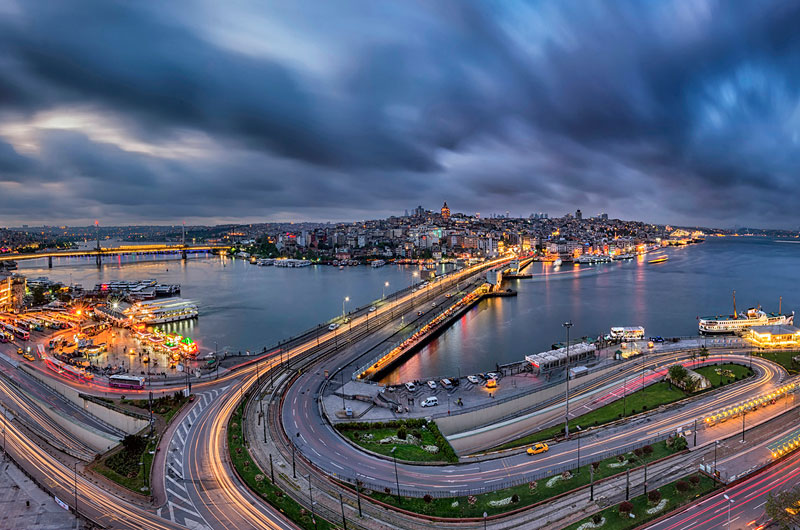
Turkey is reviving the country’s position as the crossroads between Europe and Asia with new infrastructure to meet the growing global trade. (Rep. of Turkey Ministry of Culture and Tourism)
When we look at the volume as of today, Europe and China trades more than a billion dollars worth of goods per day. And this is set to or expected to increase to two billion dollars a day in the next decade.
So there is a thinking in China and many countries between China and Europe to reconnect these continents through land structures, railroads, highways and also some river passages.
Turkey in the sense offers one of the most economically feasible alternatives in the Central Corridor, so this is the reason why Turkey is an important actor in terms of Silk Road, ancient and modern day.
Turkish Cuisine and the Silk Road Connection
SILK ROAD TODAY: What are some of Turkey’s contributions and influences on the Silk Road?
INAN: When we look at history we see that Turkish cuisine is deeply influenced by the goods that are traded from China, and silk road tea as we call it Çay in Turkish is one of the most important ingredients of the Turkish cuisine today.
Of course some spices such as, cinnamon, ginger, turmeric, these are all what we have received from China and added into our cuisine.
They are very essential – they’re the most essential parts of Turkish cooking culture these days. But of course, it’s not only about what we eat for our cuisine, but also we see as you rightly put, the caravanserais.
When you look at Anatolia you can see these caravanserais – where the merchants, the caravans of the day and the merchants stop by to overnight and stay at a safe place. We have a number of architectural sites that we can also attribute to the Silk Road.
One of the most mentioned ones in the world cultural history is Sardis in Izmir, western Turkey.
And of course when you look at the territories that the Ottomans, the Turks have governed for instance, we see Nineveh and Babil (Babylon), now of course, they are in Iraq. These are also some other cultural heritage sites that are part of the historic Silk Road.
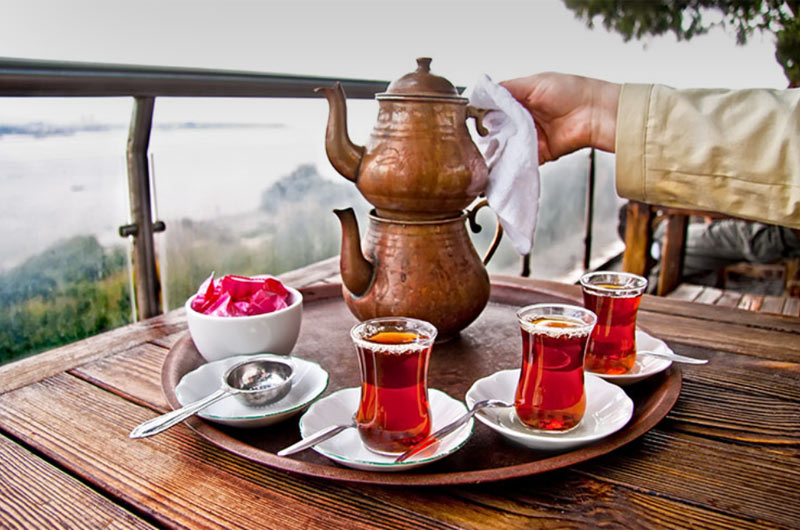
In Turkish culture, offering a guest a cup of tea or coffee, is a sign of friendship and hospitality. (Rep. of Turkey Ministry of Culture and Tourism)
Turkish Tea and Coffee Culture
SILK ROAD TODAY: I know Turkish hospitality is very well known, and tea and coffee is part of that. Can you tell me a little more about that?
INAN: When you look at the statistics, Turkish people are ranked number one in terms of tea consumption per person. So in the world, Turkish people consume the most tea per person. We are also a producer of course. We have learned about tea through the Silk Road.
It was not in our culture before but now for a very long time, tea has become a liquid, a drink that we enjoy every hour of the day.
We start our breakfasts with a tea, we continue with tea. And we of course, end up with the tea even before we go to sleep, so we always drink tea. And in a Turkish house without the Turkish tea is always an incomplete one – that is how we consider.
Of course coffee, we never forget about our coffee. We’re proud of the Turkish coffee. We don’t grow coffee unfortunately. In the past in the Ottoman times we used to import coffee from Yemen. We now import it from various other countries.
But it is the way we roast, and it is the way we schedule our day actually. Even our breakfast is called “the thing that we eat before our coffee”. So even our breakfast is named in relation with coffee – it is that important in Turkish culture.
Istanbul – Bridging Europe and Asia
I have missed to mention the most important part of Turkey, and that is Istanbul. Istanbul city is the biggest economic hub of Turkey. It connects Turkey to Europe.
It is actually a city that connects two continents, Europe and Asia. And this historic ancient Silk Road and modern-day Silk Road is going to use Istanbul as one of the most important corridors.
Istanbul is ready for that because we have already completed underground and sea tunnels, railroads, railroad connections through bridges. We have invested a lot in our infrastructure in Istanbul.
We have the biggest airport of the world, actually going to be operational by this October 2018, and seaports are in the phase of completion by the end of this year.
Turkey, in terms of Silk Road the modern-day Silk Road, has made significant investments. And Istanbul with all its history, culture and modern day investments, again its cultural contributions, is one of the best places to see in Turkey.

Balloon Rides Over the “fairy chimneys of ancient Cappadocia in Central Anatolia. (Rep. of Turkey Ministry of Culture and Tourism)
Bucket List Places
You have mentioned Cappadocia. Cappadocia is my personal favorite. I have seen many places in Turkey and I can confidently assure you that probably, that is the only place in the world that you will see what wind erosion can make out of a rocky structure.
You can live in some caves. And Turkish people lived in those caves until the 1960s. You can grow grapes out of which you can make wine, and the early Christian people have done that trying to evade the Mongolians.
They have gone underground, built underground cities, grow their own grapes and made their wines. You can keep cool in summer and keep warm in winter. That is a fascinating place, with the balloon rise in the day.
You’ll really like it if you are into winter sports. Turkish Eastern resorts offer you wonderful opportunities. My personal favorites in terms of season, is summer.
You’ll never be disappointed to see the Turkish Riviera, actually the Mediterranean coast and the Aegean coast. You’ll be very, very pleasantly surprised to see several places just in these coasts.
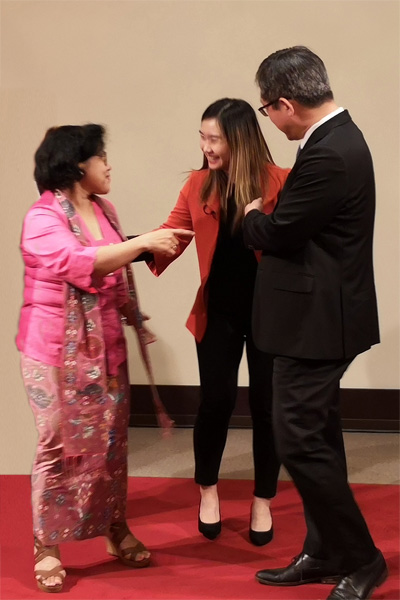
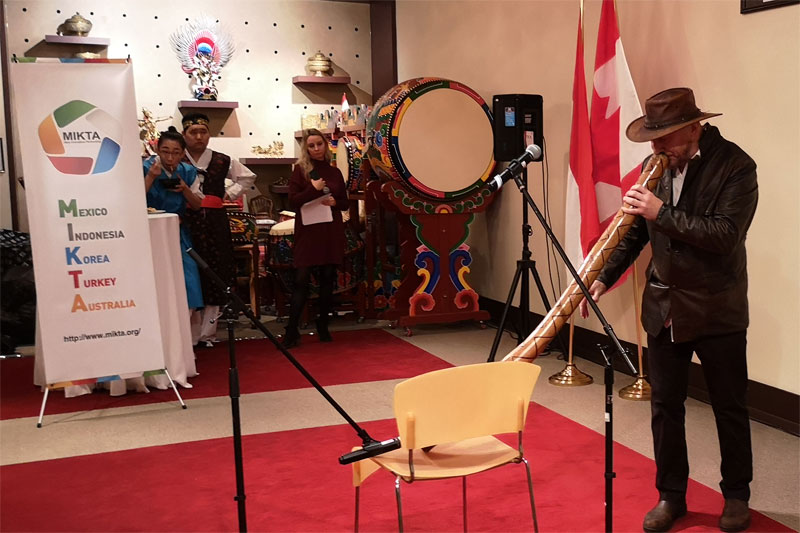

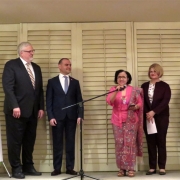 © Nikao Media
© Nikao Media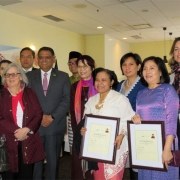 @ Nikao Media
@ Nikao Media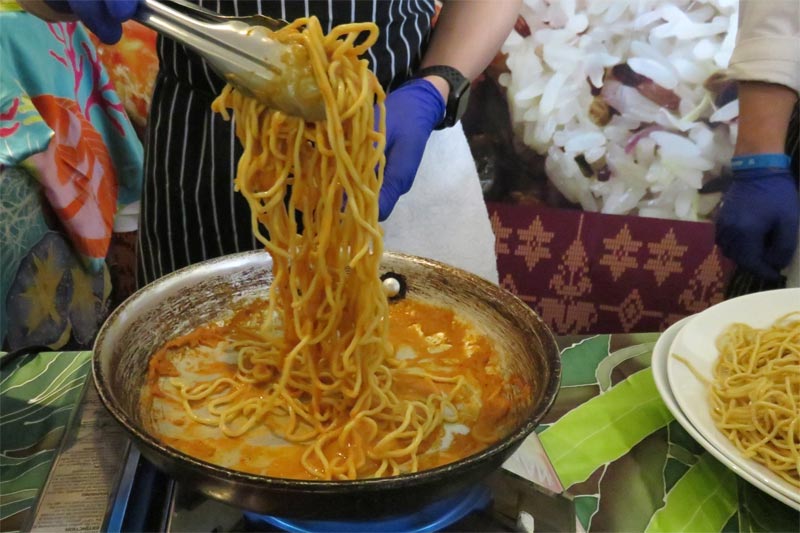
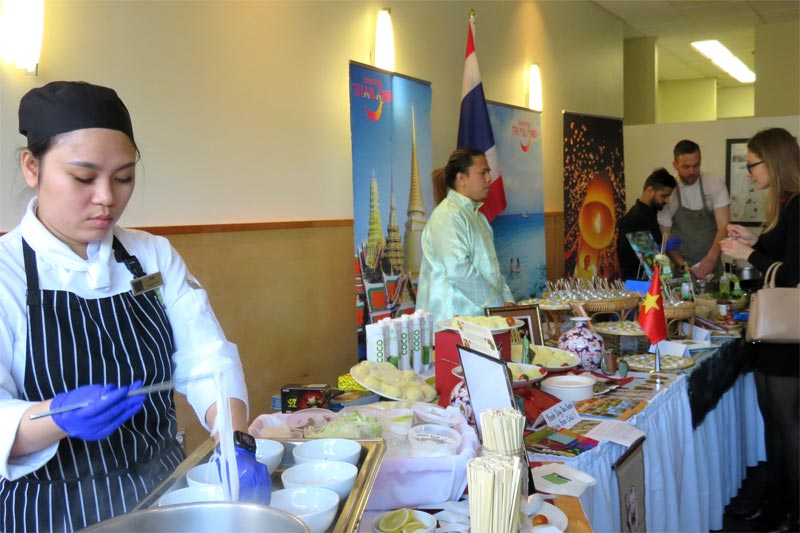
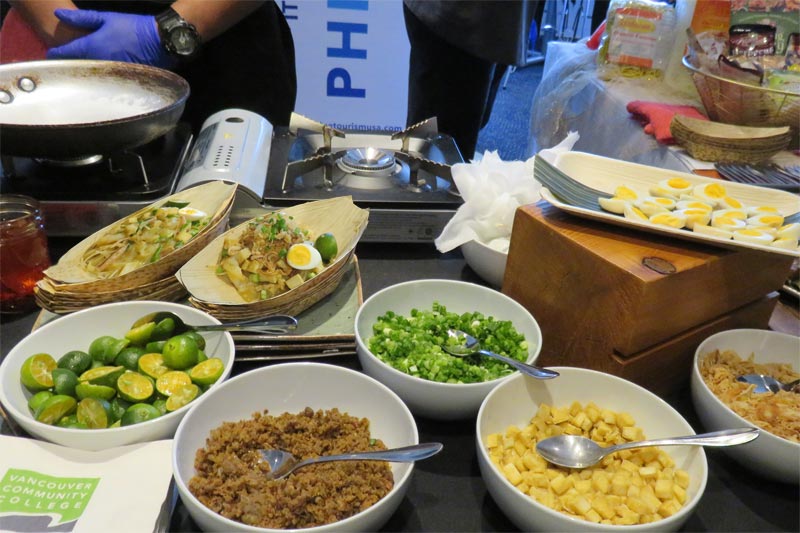
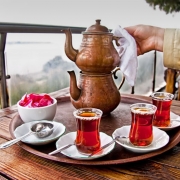 © Rep. of Turkey Ministry of Culture and Tourism
© Rep. of Turkey Ministry of Culture and Tourism


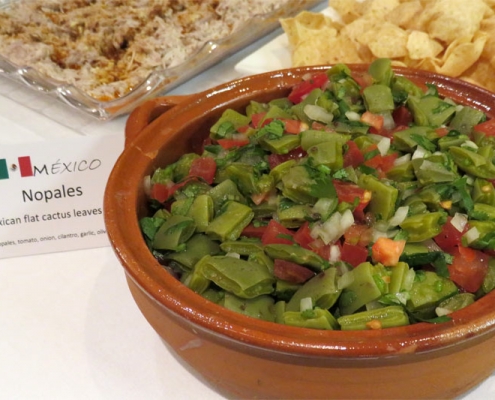 © Nikao Media
© Nikao Media